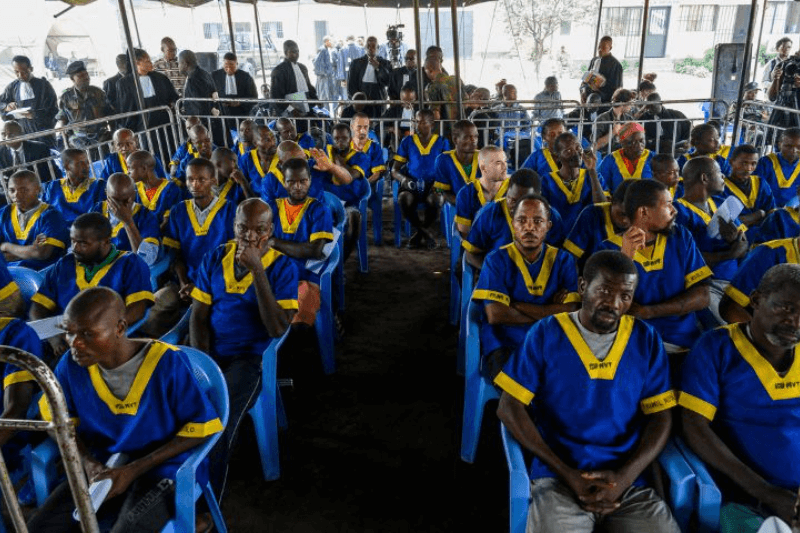The court of the Democratic Republic of Congo has sentenced 37 people, including three Americans, a Briton, a Belgian, and a Canadian, to death after finding them guilty of attempting to overthrow President Félix Tshisekedi. The defendants reportedly led attacks on the presidential palace and on the residence of one of the president’s close allies this May.
The head of the plot, Christian Malanga – a US national of Congolese origin – died in the assault, along with five others. Fifty-one people were put on trial by a military court, the deliberations broadcast on national TV and radio.
Also to be executed was Malanga’s son, Marcel, who had testified that he was forced to take part under threat from his father. A friend of Marcel’s was also sentenced to death: Tyler Thompson. The two, both in their 20s, played football together in Utah. The family of Thompson reportedly did not know about his involvement in DR Congo until they read it online.
The third American punished was Benjamin Zalman-Polun, who had business relations with Malanga. Others sentenced include Jean-Jacques Wondo, a dual Belgian-Congolese citizen and a known researcher on regional politics and security; Human Rights Watch said evidence against him was scant.
The implicated British national, Youssouf Ezangi was said to have helped in the recruitment of others in the attempted coup. Meanwhile, 14 were acquitted for lack of evidence.
While execution of death sentences has not been carried out in DR Congo for some 20 years, this moratorium was lifted in March when the government claimed there was a need to get rid of “traitors” from its army. Yet, no execution has taken place since the lifting of the moratorium, an indication that those condemned may have to serve life imprisonment.
Beginning with an attack on the home of parliamentary speaker Vital Kamerhe in Kinshasa, the attempted coup started on May 19. Later, there was also an assault on the president’s residence. An army spokesman announced later on national television that the attempt had been foiled.
Keep Reading
Local reports attributed the attackers to the New Zaire Movement, which was headed by the late Malanga, a Congolese political exile. Most parts of the country remain plagued by conflict and corruption issues, as well as governance challenges, in the mineral-rich eastern regions of the country. While President Tshisekedi has now won re-election and taken steps to ensure unrest was contained, the matter endures.

